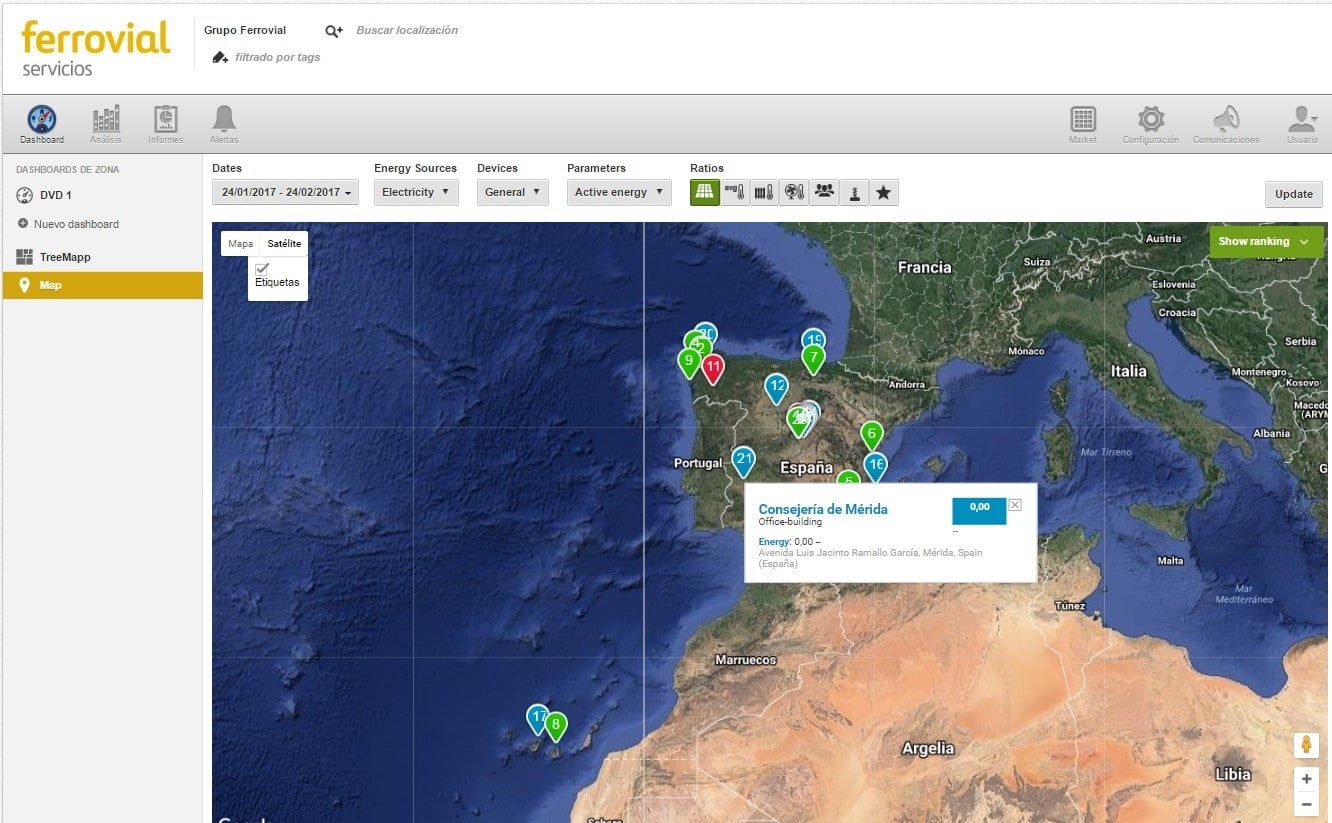
Reduce energy consumption by 2.6% per year until 2030
Although we have all heard about climate change, it is difficult to visualise the enormous changes it will bring about in our society. Reducing emissions to limit climate impact in the 21st century means drastically changing modern society: the way in which we generate and use electricity, our mobility, our consumption habits or even food production. The alternative – maintaining our current energy structures and living with the consequences – would probably imply even greater, and probably more dramatic, changes in the long run.
The International Energy Agency states that in order to limit global temperature increases to 2ºC, in the most optimistic scenarios, countries in the OECD must agree to a reduction in energy intensity (consumption of primary energy per unit of GDP) by 2.6% per year until 2030.
Reducing energy intensity means applying energy efficiency measures. Energy efficiency is an essential part of curbing carbon concentrations in the atmosphere and related climate impacts, in addition to reducing energy costs, improving competitivity and reducing our energy dependency.
All the actors in the energy sector see efficiency solutions as one of the main drivers for understanding how the developed world has evolved over recent years. Moreover, such solutions are increasingly used to shape real-life scenarios on how consumption is evolving – energy mix and prices– to the point that the International Energy Agency features it increasingly in its publications and strategy.
Innovative solutions which are committed to energy sustainability
Ferrovial Services has been a major player in the field of energy sustainability for many years, from its first contracts for public street lighting (where it pioneered the use of LED technology), to more complex projects in industrial facilities, hospitals or data processing centres. Efficiency systems can be applied in practically every sector, and Ferrovial Services is clearly committed to providing safe, efficient and profitable solutions, within the framework of its sustainability strategy.
One of the keys to the growth of this business line within Ferrovial Services was the creation of the Centre of Excellence for Energy and Facility Management, integrated by multidisciplinary experts who bring together the necessary knowledge and capacity for studying, developing and implementing energy efficiency projects, irrespective of how complex they are, and in all the locations in which the company operates. Using a historical simile, Ferrovial Services has a “masse de manoeuvre”: its competitive advantage of having sufficient flexibility to strengthen the most important projects, make use of opportunities that emerge, and manage crises, in accordance with its strategic priorities and with a long-term vision.
Another of the main tasks of the Centre of Excellence is creating, safekeeping and disseminating knowledge between different regions. The volume of information which needs to be managed on a daily basis, with emails, documents, applications, etc., is enormous, and means that the task of saving, classifying, filtering and distributing information is increasingly important. On top of this, we have to develop innovative technologies, market intelligence, adapt and improve internal processes… the list is never ending!
A clear example of what Ferrovial Services has achieved through its Centre of Excellence in Spain is a saving for its clients of more than 200 GWh of energy over the last seven years. To put this in context, this amount of electricity could keep Madrid’s public street lighting working for 2 years, power 15,000 journeys on the Madrid-Barcelona high-speed train link, or provide the energy consumed in a year by more than 20,000 homes. It is a very significant amount of energy which, if consumed, would have meant higher CO2 emissions, a greater energy dependency and, ultimately, greater environmental damage for society.
Although the results achieved are impressive, the challenges we will face in the future are no less impressive: to be successful, work needs to start right now.
Digitalisation: software for managing over one million analytical variables
Throughout the world, Ferrovial Services has installed over 300,000 LED lights, countless boilers, coolers, solar panels, biomass systems, kilometres of piping, cables, control systems… What more can it do?
First, it can commit to digitalisation, in order to be prepared to handle huge volumes of information and be able to analyse it. For this, we have implemented our own digital solution, HEFESTO, which combines proprietary systems with off-the-shelf commercial technology to create an effective and efficient solution. This technology enables management of over one million variables of any type: temperature, flow, energy… even numbers of people, their movements, energy use habits, anything that explains how and why energy is consumed within a certain facility. The Internet of Things (IoT) platform captures real time data from different sensors and devices to improve the performance of buildings or public lighting installations.
Adapting to the transformation of energy services
We must be agile, ambitious, visionary and go from a rigid, centralised way of thinking to decentralisation and flexibility. Thinking ahead to be the first to anticipate and identify problems and find the best solutions, rather than thinking in terms of responding to client needs only when asked.
The energy sector will change over the next few years. Clients and consumers will be at the centre, and will no longer be simply passive actors who merely consume and pay. Clients will be increasingly informed and have greater decision-making powers. They will interact with the network, in some cases generating their own energy and storing it, either in their homes or in their vehicles. This will cause enormous changes in the market, creating threats and opportunities which we must be open to so that Ferrovial Services can continue to grow.
How can we decarbonise society by 2050? The means by which this will be done are not yet clear, nor is the cost it will imply. But something is certain: energy efficiency will play a crucial role.








There are no comments yet